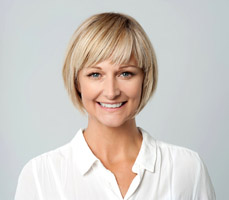 Yafa Crane Luria
Yafa Crane Luria
Teacher | Author | Positive Discipline Trainer
Twitter | Facebook
Justin sits alone at lunch every. single. day. His only friends are his cousins, who have known him since they were all babies together and are accepting of his super-shy, silent, and scattered personality. The school has called about their concerns that Justin is suffering in some way. His mother tells me, “My heart breaks when I think of him sitting alone. Why is there NO ONE who will talk to him?”
~
Mariah’s father is concerned that his daughter seems to come home every other week with some dramatic story about her losing another friend, and then the following week, the friendship resumes. He asks, “Is this normal? Does it have to be this way?”
~
Brian’s friends all call him “Brain” instead of “Brian.” They mean it as a compliment, but Brian doesn’t know how to tell them that he really doesn’t like that nickname. His mother asks me, “Is there a way that Brian can talk to his friends about this without being fearful of losing them? He won’t listen to his father and I.”
When I was younger, making, keeping, and being a good friend was a struggle for me. I had friends, but I lost friends at a disappointing rate. I remember feeling lonely as a child. Coaching and therapy helped me a lot with this and I want to share some things I learned that you can pass on to your own ADHD children or teens:
1. Some ADHD kids respond better to non-peers, and that’s okay.
For those who are sitting alone or can’t seem to make friends, getting involved in a group like Boy or Girl Scouts may be helpful. At the same time, it’s not unusual for Twice-Exceptional kids to feel more comfortable around people that aren’t their peers – they may feel closer to younger people or older people. Some are more comfortable around animals or nature. If this is the case, you might want to provide opportunities for them to help out in the settings they prefer. In my opinion, it’s not abnormal to not get along with peers, and it doesn’t mean they never will [Most of my friends are 5-20 years younger than I am, and one of my closest friends is a Muslim man who is 30 years younger than I am. (Plus, I’m Jewish. You just never know!). At the same time, I have friends that are my age and older]. Eventually, your “peers” are not an age group but an interest group or a personality type.
Some teachers open their classrooms at lunch. Students can bring their lunches and just sit and chat. Sometimes this smaller “circle” makes it easier to be included.
2. People want to feel comfortable around their friends.
I often work with kids who are very wise for their age, but don’t understand that spouting your “important” thoughts all the time is tedious to the listener. Plus, not all their “wise” thoughts are wise at all! I know there are a bunch of parents out there who totally understand this! People don’t make or keep friends with those who are correcting them all the time. Even if the relationship is close, most people want to be understood rather than told why they’re wrong and how to fix it. A good rule of thumb is to teach your child to ask, “Do you want to hear what I think?” or to say “I’m sad/It’s sad/It really sucks that you’re having a hard time.” Knowing that your friend is respecting them and not judging them makes for a feeling of safety.
3. Conflict is okay if it’s handled right.
Asking for something you want is okay, and so is making mistakes. It’s how we handle those moments that can bring us closer or farther apart. Especially with texting, mistakes are more likely to be made. I would make it a point to teach your children to have serious conversations in person or over the phone, even if “texting is LIFE!!!” And that goes for parents as well. I have seen far too many unnecessary conflicts and irreversible alienation due to texting. A good rule of thumb: if it takes more than two or three texts for both friends to feel okay, start talking instead of texting.
It’s also helpful to let friends know that it’s natural for people to make mistakes, whether it’s making up a nickname that you don’t really like, assuming that someone is angry when it turns out they weren’t angry at all, or thinking that someone is brushing you off when that’s not what’s happening. The trick is to state your own preference and ask if you can talk about the situation. You can preface this kind of conversation by saying, “I’m not mad; I just wanted to talk to you about this.” The other strategy is to ask, “I think you’re saying XYZ but I may be misunderstanding. Can you explain what you meant?”) Again, this goes for the parent-child relationship as well. Saying, “Oh, I know exactly what he/she means!” isn’t fair to anyone. You end up short-changing the friendship/relationship.
Assume the best about your friends
Most people are afraid of abandonment, whether they know it or not, and when confronted with something unpleasant, they go into flight, fight, or freeze. In survival mode, our brain focuses on “How can I save myself?” and isn’t thinking rationally at all. This is true whether the person has ADHD or not. (Read more here). Yelling at each other, when it’s not an emergency, is a waste of your physical, mental, and emotional power, and it depletes everyone involved.
Instead, practice these suggestions yourself, and teach them to your children. Having clear boundaries AND an open heart is a winning combination when trying to make, keep, or improve friendships*.
xo, Yafa
Copyright 2020 Yafa Crane Luria All Rights Reserved
 About Yafa Crane Luria
About Yafa Crane Luria
Yafa Crane Luria specializes in helping families who are new to ADD/ADHD, who are facing a new stage in ADHD parenting, or who have tried nearly everything and are still frustrated and confused by their child’s or teen’s Blocked but Brilliant brain. A true ADHD trailblazer and fierce advocate, Yafa is a 35-year veteran teacher and school counselor, a certified Positive Discipline trainer, and an award-winning author. In 2018, after decades of working with ADHD kiddos and families, Yafa designed an ADHD- and neuro-divergent brain-specific behavior program that is customizable to individual families in every way. It addresses the unique challenges of parenting a child/teen with a “Big Heart and a Noisy Brain™.”
Fun fact: Yafa’s nickname growing up was “Mountain Goat” because she climbed EVERYTHING. You can listen to Yafa’s personal ADHD story and get more information on her website: BlockedtoBrilliant.com
To read about the other types of ADHD view all posts by Yafa Crane Luria here.
Save
Save


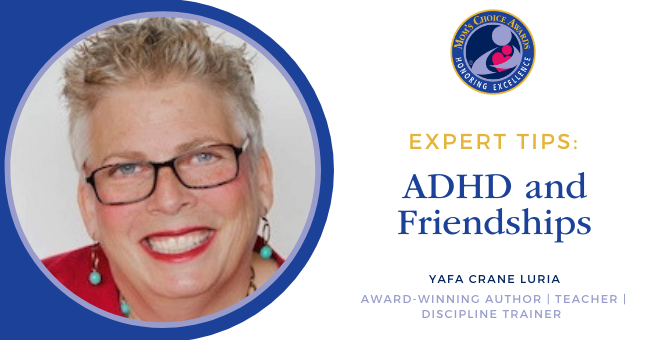
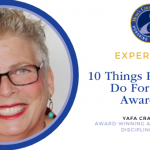
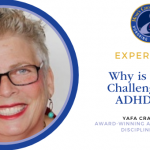
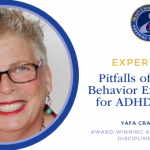
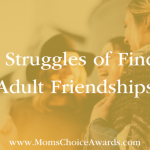
13 Comments on “ADHD and Friendships”
thank you for sharing
Very informative. I have a lot of adhd patients
Thank you for the helpful info!! My son has recently been diagnosed with ADHD so I’m in the learning process
Some helpful information, my son has adhd.
This was an amazing read! Really opened my eyes in a whole different perspective. I have a family member with these issues. My boys are 4 and 1 so you never know if this is something that I will face with them. Thanks so much for enlightening me!
great article and good ideas. You have to make adjustments for these children and always have plan B
My son is 11 and he has ADHD. We have kept him involved in outside activities, but he has had behavior problems and difficulty making friends. Luckily, we are in a small town and lots of people have really been there for him. Sometimes I don’t feel like I’m helping him or doing the right thing, but I try my best. My parenting style has definitely change from my first two to him. I just want him to be emotionally ok and grow up to be a productive young man.
My little brother struggled with ADHD. I wish people had had these tips to understand him better while he was in school.
Conflict resolution skills should be taught in all schools. We all need to know how to do this properly and kindly.
This is a great article. I have a good friend who’s eldest son has two young boys with ADHD. And I know that it’s demanding on him and his wife. But love know’s no boundaries. And proof that love isn’t always easy. But nonetheless, love always prevails.
I love this blog
I understand how it is to have a child with ADHD…my son who is 29 now has ADHD…his daughter..my 7 year old granddaughter has it too!! It can be very frustrating and confusing at times so we just take it slow with lots of love,
Well I totally get it. I was better off being by myself sure I had a few friends but I was more comfortable being alone and that’s totally okay! Never be afraid to be who you are! It took me awhile to figure that one out!